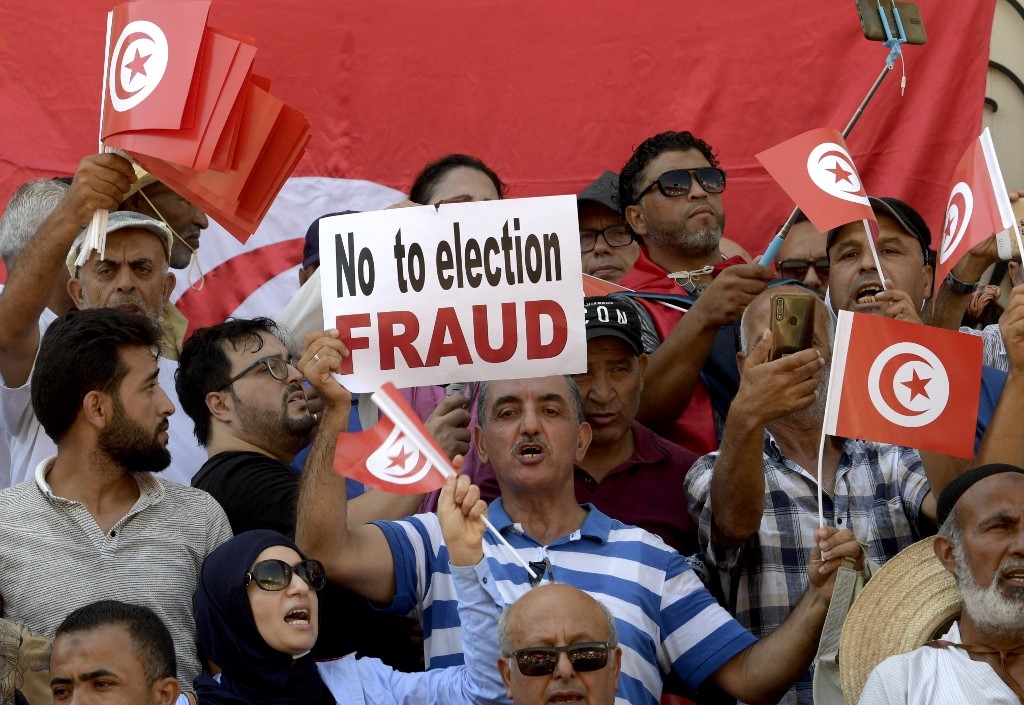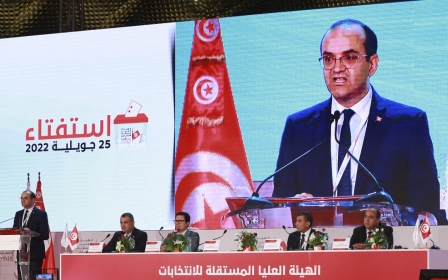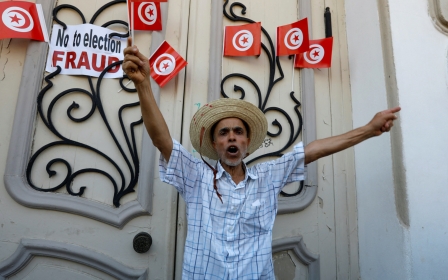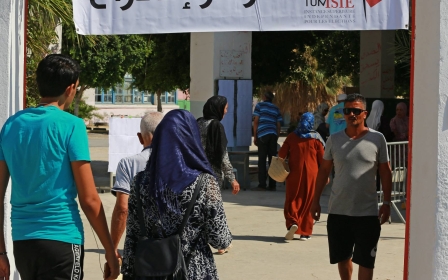Tunisia: US envoy summoned over criticism of constitutional vote

Tunisia summoned the US charge d'affaires for a dressing down on Friday after American officials criticised Tunisia's referendum on a new constitution.
Tunisia's foreign ministry called Natasha Franceschi, currently the top official at the US embassy in Tunis, to its headquarters after remarks made by US Secretary of State Anthony Blinken and US ambassadorial nominee Joey Hood.
The new constitution was approved on Monday by nearly 95 per cent of voters, with a turnout of just 30.5 per cent.
The document grants almost unlimited power to President Kais Saied, whose rivals had called for a boycott of the vote.
Blinken on Thursday voiced concerns that the "new constitution could weaken Tunisia's democracy and erode respect for human rights and fundamental freedoms".
New MEE newsletter: Jerusalem Dispatch
Sign up to get the latest insights and analysis on Israel-Palestine, alongside Turkey Unpacked and other MEE newsletters
Noting the low turnout, he added: "An inclusive and transparent reform process is crucial going forward to begin to restore the confidence of the millions of Tunisians who either did not participate in the referendum or opposed the new constitution."
Hood, meanwhile, told the Senate Foreign Affairs Committee in a hearing on Wednesday that Tunisia had recently "experienced an alarming erosion of democratic norms and fundamental freedoms".
"President Kais Saied's actions over the past year to suspend democratic governance and consolidate executive power have raised serious questions," he said.
Condemning the statements, Tunisian Foreign Minister Othman Jerandi told Franceshi the remarks were an "unacceptable interference in internal national affairs".
Jerandi also said the comments did not "at all reflect the reality of the situation in Tunisia".
Before criticising the remarks, Jerandi had met with Saied, who expressed his "rejection of any form of interference in the country's internal affairs".
The US has been increasingly critical of the president, who dissolved parliament and seized control of the judiciary and the electoral commission on 25 July last year, arguing that the country was ungovernable.
Middle East Eye delivers independent and unrivalled coverage and analysis of the Middle East, North Africa and beyond. To learn more about republishing this content and the associated fees, please fill out this form. More about MEE can be found here.




